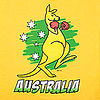So for those who don't know, Rwanda led by Paul Kagame have been coming under fierce international pressure for supporting rebel movements in eastern Congo. Kagame, having ended the genocide against Tutsis and moderate Hutus in 1994, was at first an international darling of African development along with his friend Yoweri Museveni in Uganda. Since their 1996 decision to invade their massive western neighbor Congo though, allegedly to clear out remaining Hutu genocidaires, both leaders have been accused of supporting plunder of Congo's rich resource base through proxies. Recently, the same Western countries such as the US and UK that were backing them have started speaking out against fears of rising authoritarianism. Even Susan Rice has been implicated with her previous unabashed support of Kagame. Of course Western corporations are nevertheless involved through illicit networks in funding rebel militias in order to extract resources. So there seems to be a tension between international notions of good governance and actual practices of multinational corporations, with authoritarian leaders such as Kagame trying to leverage the situation to their advantage.
Moreover, the rape crisis in Congo has been massive, but still there doesn't seem to be the same international outcry as with the Ethiopian famine under communist leader Mengistu in the 1980s (those who were around during that time might remember Bob Geldof and Live Aid). I suspect it's because of influential Western interests still being maintained by Kagame and others, perhaps there hasn't been more social awareness of this tragedy disseminated through the media given the historically complicit relationship of the West with the Rwandan and Ugandan regimes. Nevertheless, I'd argue the tale of this crisis is starting to get out there in spite of these same interests, given the absolutely blatant involvement of Rwanda with the militias in eastern Congo. Perhaps there's a threshold for how long we can cover this tragedy up? I start this thread then to question our assumptions about the "eternal state of war" in Central Africa and ask about the role of our country in this crisis. We need to historicize the region and recognize this isn't simply "Africans killing Africans."
http://www.guardian.co.uk/world/2012/de ... ngo-rebels
Rwanda and geopolitics of Africa
9 posts
• Page 1 of 1
Rwanda and geopolitics of Africa
The Subversives
- These users thanked the author broken robot for the post:
- foadi
-

broken robot - VIP

- Posts: 2017
- Joined: Sat Sep 22, 2012 2:11 pm
- Location: CA
- Gender:

- Has thanked: 206 times
- Been thanked: 235 times
- Political Leaning: Socialist
Re: Rwanda and geopolitics of Africa
Funny you should start this thread - there was an item I was reading on CNN only the other day regarding the genocide trials
http://edition.cnn.com/2012/12/20/world ... ?hpt=hp_t3
http://edition.cnn.com/2012/12/20/world ... ?hpt=hp_t3
- These users thanked the author WizardfromOz for the post:
- foadi
-

WizardfromOz - Senator
- Posts: 1625
- Joined: Mon Nov 12, 2012 9:33 am
- Gender:

- Has thanked: 3 times
- Been thanked: 87 times
Re: Rwanda and geopolitics of Africa
Yeah, there's been a lot of analysis arguing that US support for Kagame has been based on "guilt" over genocide, but seems like a facile explanation of a really complex problem. The fact that the US/UN failed to intervene to prevent genocide seems to have turned into an authoritative myth explaining US's unequivocal geopolitical support for the current regime. I'd argue instead there have to be other factors involved such as corporate interests in exploiting resources of eastern Congo given lack of a reliable Congo sponsor after Mobutu's fall and Laurent Kabila's turn against Rwanda and Uganda.
The Subversives
- These users thanked the author broken robot for the post (total 2):
- The Dharma Bum • foadi
-

broken robot - VIP

- Posts: 2017
- Joined: Sat Sep 22, 2012 2:11 pm
- Location: CA
- Gender:

- Has thanked: 206 times
- Been thanked: 235 times
- Political Leaning: Socialist
Re: Rwanda and geopolitics of Africa
I dont think the US can be held completely accountable - The French had forces in the country and they pretty much did nothing. Yes the US could have been more timely in its response, but there where a lot of other factors as well
-

WizardfromOz - Senator
- Posts: 1625
- Joined: Mon Nov 12, 2012 9:33 am
- Gender:

- Has thanked: 3 times
- Been thanked: 87 times
Re: Rwanda and geopolitics of Africa
Last edited by broken robot on Sat Dec 22, 2012 11:10 pm, edited 2 times in total.
The Subversives
-

broken robot - VIP

- Posts: 2017
- Joined: Sat Sep 22, 2012 2:11 pm
- Location: CA
- Gender:

- Has thanked: 206 times
- Been thanked: 235 times
- Political Leaning: Socialist
-

WizardfromOz - Senator
- Posts: 1625
- Joined: Mon Nov 12, 2012 9:33 am
- Gender:

- Has thanked: 3 times
- Been thanked: 87 times
-

WizardfromOz - Senator
- Posts: 1625
- Joined: Mon Nov 12, 2012 9:33 am
- Gender:

- Has thanked: 3 times
- Been thanked: 87 times
Re: Rwanda and geopolitics of Africa
- These users thanked the author The Dharma Bum for the post:
- broken robot
-

The Dharma Bum - Vice President
- Posts: 11594
- Joined: Tue Aug 21, 2012 10:31 am
- Gender:

- Has thanked: 3285 times
- Been thanked: 617 times
- Political Leaning: Anarcho Communist
Re: Rwanda and geopolitics of Africa
The Subversives
-

broken robot - VIP

- Posts: 2017
- Joined: Sat Sep 22, 2012 2:11 pm
- Location: CA
- Gender:

- Has thanked: 206 times
- Been thanked: 235 times
- Political Leaning: Socialist
9 posts
• Page 1 of 1
Who is online
Users browsing this forum: No registered users and 1 guest
